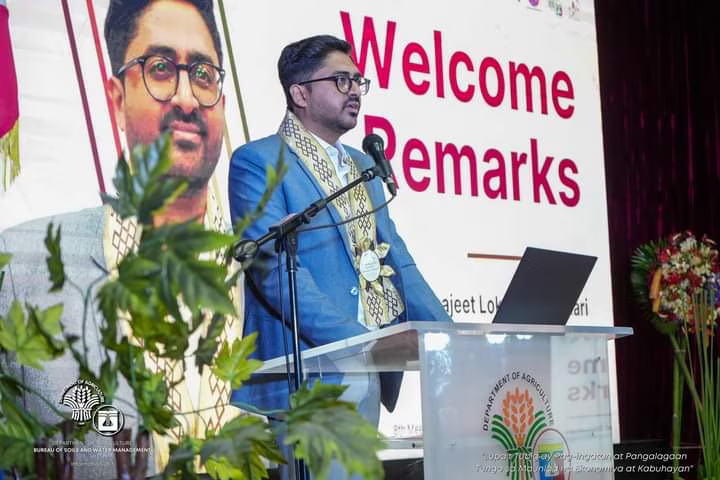Tuesday, 3 March 2026

Asian Soil Laboratory Network (SEALNET), the first regional network established within Global Soil Laboratory Network (GLOSOLAN), has set a precedent for other regions by grouping soil laboratories into regional networks.
The 8th Asian Soil Laboratory Network (SEALNET) meeting, held in the Philippines from 15-19 July, brought together distinguished dignitaries, scientists, and SEALNET members from across the globe. Virtual participants from different geographies also attended the event. ICRISAT Scientist Dr Pushpajeet Lokpal Choudhari, Chair of the Asian Soil Laboratory Network, had the honour of delivering the opening address.
SEALNET, the first regional network established within Global Soil Laboratory Network (GLOSOLAN), has set a precedent for other regions by grouping soil laboratories into regional networks. The initiative aims to harmonize Standard Operating Procedures (SOPs), foster connections among Asian soil laboratories, and advance collective efforts towards sustainable soil health.
Dr Jacqueline d’Arros Hughes, Director General of ICRISAT, commended SEALNET’s initiative and their commitment to continue working together, inspiring one another, and making significant strides towards a sustainable and healthy future for our soils.
Currently, SEALNET connects approximately 150 registered laboratories, a testament to the commitment of its members and the dedicated efforts of the SEALNET Steering Committee over the years.
At the inaugural session held on 15 July 2024, Mr Lionel Henri Valentin Dabbadie, FAO Representative in the Philippines, and Mr Lifeng Li, Director of the FAO Land and Water Division, were the guest speakers. The keynote address was delivered by the Honourable Francisco P Tiu-Laurel Jr., Secretary of the Department of Agriculture, Philippines.
After years of virtual meetings due to the COVID-19 pandemic, this in-person gathering marked a significant opportunity to strengthen relationships among laboratories and countries and to define a sustainable work plan for the coming years. All focal points were called on to encourage regional laboratories to join SEALNET and participate in regional proficiency testing.
“By joining this initiative, members will contribute to collective goals and benefit from shared resources, expertise, and collaborative opportunities. Together, we can generate quality data to amplify our impact and drive meaningful change in soil health management,” said Dr Pushpajeet Choudhari.